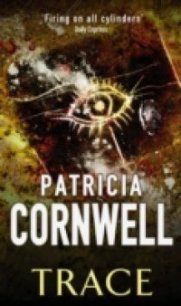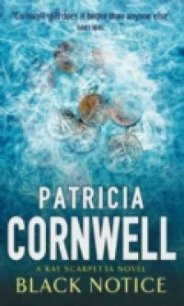All That Remains - Cornwell Patricia (серия книг TXT) 📗
"Anyone observing them might have overheard."
"That is the risk if one has personal discussions in public, and I had mentioned this to Jill."
"If she were so paranoid about anyone suspecting, then why did she take the risk?"
"Her resolve was not strong, Kay."
Anna reached for her wine. "When she and Elizabeth were alone, it was too easy to slip back into intimacy. Hugging, comforting, crying, and no decisions were made."
That sounded familiar. When Mark and I had discussions either at his place or mine, inevitably we ended up in bed. Afterward, one of us would leave, and the problems were still there.
"Anna, did you ever consider that their relationship might have been connected to what happened to them?"
I asked.
"If anything, their relationship made it seem all the more unusual. I should think that a woman alone in a bar looking to be picked up is in much greater danger than two women together who are not interested in drawing attention to themselves."
"Let's return to the subject of their habits and routines," I said.
"They lived in the same apartment complex but did not live together, and again, this was for the sake of appearances. But it was convenient. They could lead their separate lives, and then get together late at night at Jill's apartment. Jill preferred to be in her own place. I remember her telling me that if her family or other people repeatedly tried to call her late at night and she was never home, there would have been questions."
She paused, thinking. "Jill and Elizabeth also exercised, were very fit. Running, I think, but they didn't always do this together."
"Where did they run?"
"I believe there was a park near where they lived."
"Anything else? Theaters, shops, malls they may have frequented?"
"Nothing comes to mind."
"What does your intuition tell you? What did it tell you at the time?"
"I felt that Jill and Elizabeth were having a stressful conversation in the bar. They probably wanted to be left alone and would have resented an intrusion."
"Then what?"
"Clearly they encountered their killer at some point that evening."
"Can you imagine how that might have happened?"
"It has always been my opinion it was someone they knew, or at least were well enough acquainted with so that they had no reason not to trust him. Unless they were abducted at gunpoint by one or more persons, either in the bar's parking lot or somewhere else they might have gone."
"What if a stranger had approached them in the bar's parking lot, asked them for a lift somewhere, claimed to have car trouble…?"
She was already shaking her head. "It is inconsistent with my impressions of them. Again, unless it was someone with whom they were acquainted."
"And if the killer was impersonating a police officer, perhaps pulled them over for a routine traffic stop?"
"That's another matter. I suppose even you and I might be vulnerable to that."
Anna was looking tired, so I thanked her for dinner and her time. I knew our conversation was difficult for her. I wondered how I would feel were I in her position.
Minutes after I walked through my front door, the phone rang.
"One last thing that I remember but probably does not matter," Anna said. "Jill mentioned something about the two of them working crossword puzzles when they wanted to stay in, just the two of them, on Sunday mornings, for example. Insignificant, perhaps. But a routine, something they did together."
"A book of puzzles? Or the ones in the newspapers?"
"I don't know. But Jill did read a variety of newspapers, Kay. She usually had something with her to read while waiting for her appointment. The Wall Street Journal, the Washington Post."
I thanked her again and said next time it was my turn o cook. Then I called Marino.
"Two women were murdered in James City County eight years ago," I went straight to the point. "It's possible there's a connection. Do you know Detective Montana out there?"
"Yeah. I've met him."
"We need to get with him, review the cases. Can he keep his mouth shut?"
"Hell if I know," Marino said.
Montana looked like his name, big, rawboned, with hazy blue eyes set in a rugged, honest face topped by thick gray hair. His accent was that of a native Virginian, his conversation peppered with "yes, ma am's. The following afternoon he, Marino, and I met at my home, where we were ensured privacy and no interruptions.
Montana must have depleted his annual film budget on Jill and Elizabeth's case, for covering my kitchen table were photographs of their bodies at the scene, the Volkswagen abandoned at the Palm Leaf Motel, the Anchor Bar and Grill, and, remarkably, of every room inside the women's apartments, including pantries and closets. He had a briefcase bulging with notes, maps, interview transcriptions, diagrams, evidence inventories, logs of telephone tips. There is something to be said for detectives who rarely have homicides in their jurisdictions. Cases like these come along once or twice in their careers, and they work them meticulously.
"The cemetery is right next to the church."
He moved a photograph closer to me.
"It looks quite old," I said, admiring weathered brick and slate.
"It is and it isn't. Was built in the seventeen-hundreds, did all right until maybe twenty years ago, when bad wiring did it in. I remember seeing the smoke, was on patrol, thought one of my neighbor's farmhouses was burning. Some historical society took an interest. It's supposed to look just like it used to inside and out.
"You get to it by this secondary road right here" - he tapped another photograph - "which is less than two miles west of Route Sixty and about four miles west of the Anchor Bar, where the girls were last seen alive the night before."
"Who discovered the bodies?"
Marino asked, eyes roaming the photograph spread.
"A custodian who worked for the church. He came in Saturday morning to clean up, get things ready for Sunday. Says he had just pulled in when he spotted what looked like two people sleeping in the grass about twenty feet inside the cemetery's front gate. The bodies were visible from the church parking lot. Doesn't seem whoever did it was concerned about anybody finding them."
"Am I to assume there was no activity at the church that Friday night?"
I asked.
"No, ma'am. It was locked up tight, nothing going on."
"Does the church ever have activities scheduled for Friday nights?"
"They do on occasion. Sometimes the youth groups get together on Friday nights. Sometimes there's choir practice, things like that. The point is, if you selected this cemetery in advance to kill someone, it wouldn't make a whole lot of sense. There's no guarantee the church would be deserted, not on any night of the week. That's one of the reasons I figured from the start that the murders were random, the girls just met up with someone, maybe in the bar. There isn't much about these cases to make me think the homicides were carefully planned."
"The killer was armed," I reminded Montana. "He had a knife and a handgun."
"The world's full of folks carrying knives, guns in their cars or even on their person," he said matter-of-factly.
I collected the photographs of the bodies in situ and began to study them carefully.
The women were less than a yard from each other, lying in the grass between two tilting granite headstones. Elizabeth was facedown, legs slightly spread, left arm under her stomach, right arm straight and by her side. Slender, with short brown hair, she was dressed in jeans and a white pullover sweater stained dark red around the neck. In another photograph, her body had been turned over, the front of her sweater soaked with blood, eyes the dull stare of the dead. The cut to her throat was shallow, the gunshot wound to her neck not immediately incapacitating, I recalled from her autopsy report. It was the stab wound to her chest that had been lethal.


